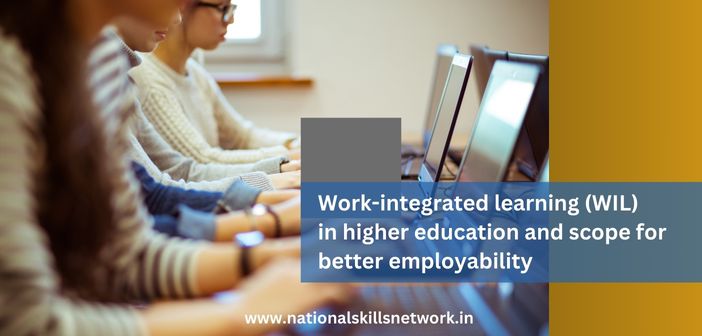
“Around the world, there is an increasing requirement for producing talent that contributes to the economic growth of the country and work-integrated learning is going to play an important role in achieving this goal,” says Ms. Judie Kay, WACE Vice Chair Programs and Partnerships and Chair of the WACE National Associations Committee.
World Association of Cooperative & Work-Integrated Education (WACE) is the only international professional organization dedicated to developing, expanding, branding, and advocating for cooperative and work-integrated learning programs within industry and educational institutions.
To understand and know more about the global perspective on work-integrated learning in higher education, its impact on students and the industry and the work of WACE in this area, we spoke to Ms. Judie Kay, WACE Vice Chair Programs & Partnerships and Chair of the WACE National Associations Committee.
Below are a few excerpts from our conversation. You can watch the full video on our YouTube channel.
Q: What is the importance of work-integrated learning in enhancing youth employability?
A: Work-integrated learning has become critical in higher education, vocational and technical education across the world. Work-integrated learning is a combination of practice and learning. It is having work experience in an authentic setup like project-based work, placements, etc. Around the world, there is an increasing requirement for producing talent that contributes to the economic growth of the country, and work-integrated learning is going to play an important role in achieving this goal.
WACE is developing a global framework for implementing work-integrated learning across the world. This is to ensure all the students have a quality experience when it comes to work-integrated learning. This framework will be accessible to other countries for implementing it in their respective countries by applying it to their context.
WACE brings in research and expertise along with a whole range of services and programs that ensure quality, address global challenges, and support other countries in successful implementation of work-integrated learning.
Q: How do we differentiate between overlapping terms like work-based learning, work-integrated learning, apprenticeships, etc.?
A: I would like to define work-based learning as learning while working at the workplace as part of placements, project work or apprenticeships.
Whereas work-integrated learning is a broader concept which involves authentic and meaningful work, where an employer is involved, but this doesn’t necessarily have to take place at the workplace. This can include industry projects, virtual experiences, and others, where learning can take many forms.

Q: Please share your expertise in establishing sustainable industry collaborations for work-integrated learning.
A: We must understand that the industry is always looking for the right talent. And work-integrated learning is a vehicle to deliver that talent. We need to make it simple for the industry to be actively involved in work-integrated learning. As an institution, we must communicate about the benefits of such a model of learning and be responsive to the industry needs. One way to do this is through one’s alumni network. It is a way to prove to the industry that this works.
We need to have successful models and projects in place to show it to the industry. Having such models will also be helpful in getting the Small and Medium-Scale Enterprises (SMEs) on board.
Also read: 5 Key Benefits of Work-Integrated Learning for Learners and Industries
Q: What has been your experience of implementing work-integrated learning?
A: We have a quality framework in Australia for implementing work-integrated learning. So, based on that we have designed the implementation part in three stages –
- The need to prepare all the parties involved for work-integrated learning. This includes students, trainers, industry partners, etc. We need to make sure we meet all their needs and give them a global experience. This could be through well-designed activities relevant for students that can be delivered to them virtually.
- Extending the support to both the industry and students. We need to make sure that students are learning, while the industry also feels supported.
- Reflecting on students’ learning outcomes. How has been their learning, have their expectations been met, are they able to perform tasks as per industry needs, are something to consider here. This comes after the placements, projects, etc. are completed.
Subscribe to our YouTube channel for more updates:
Subscribe on YouTube


